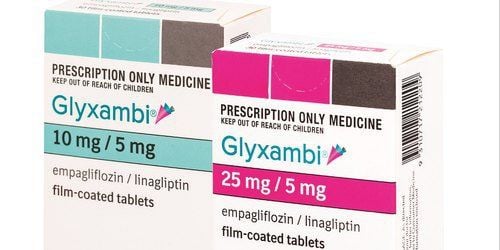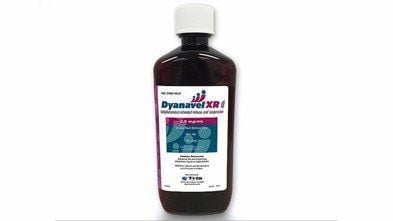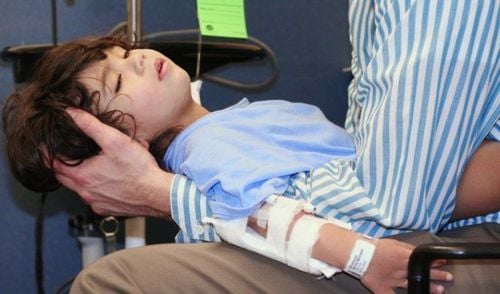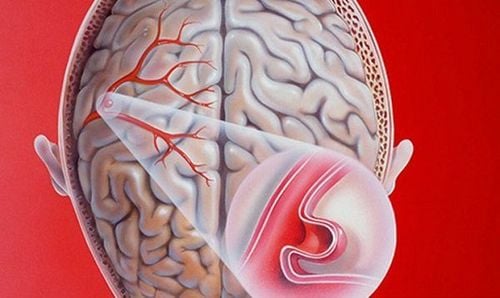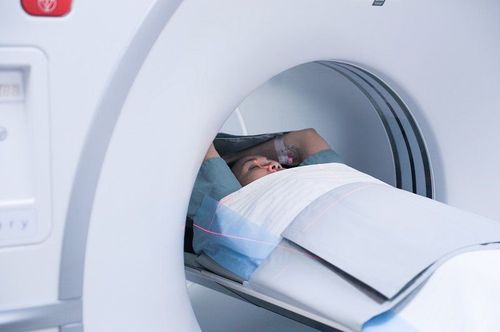This is an automatically translated article.
The article was professionally consulted with Master - Doctor Huynh An Thien - Department of Medical Examination and Internal Medicine, Vinmec Da Nang International General Hospital.Cluster headaches often cause a lot of discomfort to patients because of their sudden, intense nature. Therefore, when the pain occurs with a frequency, you need to see a doctor to be diagnosed with the cause and treated promptly.
1. Diagnosis of cluster headache
Cluster headaches are severe pain. The diagnosis of a cluster headache depends on your description of the pain, its location, severity, frequency, and duration of headache during questioning. The more details you list, the easier it will be for your doctor to determine the type and cause of your headache. Methods commonly used to diagnose cluster headaches include:1.1. Neurological examination
A neurological exam helps your doctor detect physical signs of a neurological disorder. Your doctor will use a variety of measures to evaluate brain function, such as examining the senses, reflexes, and nerves. In patients with cluster headaches, examination results are often undetectable.1.2. Imaging test
If the neurological exam shows abnormal results or the headache is severe, your doctor may recommend other testing to rule out other causes such as a tumor or brain aneurysm. Commonly used brain imaging tests include:MRI : An MRI uses a strong magnetic field and radio waves, which can provide detailed views of the brain's structure and blood vessels. CT: CT uses X-rays to create detailed cross-sectional images of the brain.
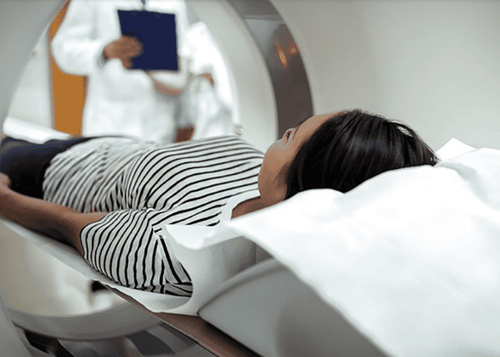
2. Cluster headache treatment
Currently, scientists have not found a cure for cluster headaches. The main goals of treatment are to reduce the severity of the pain, shorten the duration of the headache, and stop the attacks.Because of the acute nature of cluster headaches, the application of acute and prophylactic measures is believed to be most effective.
2.1. Acute treatment
Oxygen: Breathing oxygen through a mask for a short period of about 15 minutes significantly reduces headaches. Oxygen is a safe method with no side effects. Its main disadvantage is the need for an oxygen tank and an oxygen regulator. This makes treatment inconvenient, that patients can only go to the hospital but cannot self-treat at home. Triptans: Triptans in the form of an injection of sumatriptan (Imitrex), commonly used to treat migraines, are also effective treatments for acute cluster headaches. The first injection should be observed during and after the injection. Sumatriptan is also used as a nasal spray, but it is not effective for most people and takes longer to work for pain relief. Sumatriptan is not recommended for people with high blood pressure and uncontrolled cardiovascular disease. Zolmitriptan nasal spray (zomig) is another type of triptans used to relieve cluster headaches. Oral medications interact slowly, usually not helpful in acute treatment.
2.2. Preventive treatment
Prophylactic treatment is used to prevent recurrent cluster headaches. The determination of prophylactic drugs depends on the duration and frequency of the pain.Calcium channel blockers. The calcium channel blockers verapamil (Calan, Verelan) is often the first choice to prevent cluster headaches. Verapamil may be used in combination with other medicines. Medications can be used long-term to control chronic cluster headaches. Side effects of the drug include constipation, nausea, fatigue, swollen ankles, and low blood pressure. Corticosteroids: Prednisone-inhibiting drugs (Prednisone Intensol, Rayos) are effective in preventing cluster headaches. Your doctor may prescribe corticosteroids if the headache is new or if the pain is brief and of low frequency. Corticosteroids are not used long-term because of the increased risk of serious side effects such as diabetes, high blood pressure, and cataracts.
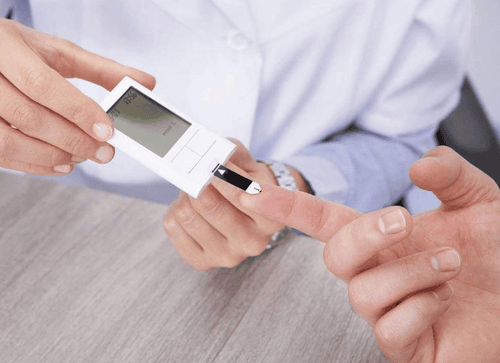
2.3. Surgery
Chronic cluster headaches are rarely treated with surgery except in cases of failure to respond to other treatments, intolerance to medications, or side effects of medications.Sphenopalatine parasympathetic ganglion stimulation: A minor surgery using a cotton stick inserted into the nose to the location of the sphenopalatine ganglion. Studies show it provides quick pain relief and reduces the frequency of pain, but more research is needed to prove it. Non-invasive vagus nerve stimulation (VNS): Uses a hand-held device to electrically stimulate the vagus nerve through the skin. Some studies show that VNS helps reduce the frequency of cluster headaches. Another cause of cluster headaches is damage to the trigeminal nerve, the cord that controls the activities of the face, teeth, and around the mouth. It can be effectively treated by surgery with many different methods such as alcohol injection into the 5th nerve branch, thermocoagulation, radiofrequency ablation or Gasser ganglion irradiation, selective nerve excision after the Gasser ganglion. However, surgery is rarely performed due to the risk of complications such as muscle weakness in the jaw and loss of sensation in certain areas of the face and head.
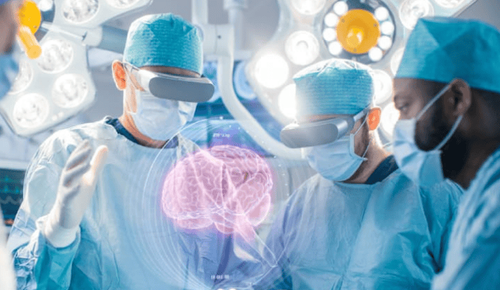
2.4. Future treatments
Scientists are studying a number of potential methods that can be applied in the treatment of cluster headaches, including:Stimulation of the occipital nerve. The surgeon will implant electrodes in the back of the head and connect them to a small device that looks like a pacemaker. The electrodes transmit electrical impulses to stimulate the occipital nerve, helping to reduce or prevent pain. Several studies have demonstrated its effectiveness in reducing headache severity and frequency in people with chronic cluster headaches. Deep brain stimulation. Deep brain stimulation is a promising but unproven treatment for cluster headaches that have not responded to other treatments. In this procedure, doctors implant electrodes into the hypothalamus, the area of the brain that controls pain duration. Next, the doctor connects the electrode to a generator that alters the electrical impulses of the brain to relieve pain. However, because the electrode is placed deep in the brain, it can lead to complications such as infection or bleeding. Deep hypothalamic brain stimulation may provide pain relief in people with severe chronic cluster headaches that have not responded to medication.
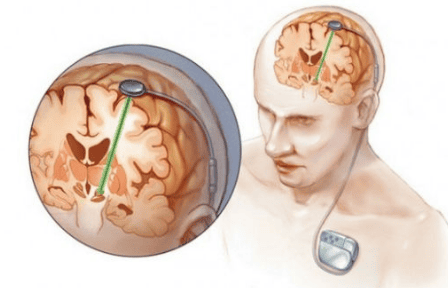
3. Lifestyle and home remedies
The following measures can help you avoid cluster headaches:Sleep at regular times: Pain can be triggered by changes in your daily sleep cycle. Avoid alcohol: Drinking alcohol, beer, and wine can quickly trigger a cluster headache.
4. What to prepare before going to the doctor for cluster headache?
One of the most helpful things you can do is keep a headache journal. Each time you have a headache, keeping a record of these details can help your doctor determine the type of headache and possible cause of the headache.Date : Make a chart of the date and duration of each headache Pain duration : How long does each headache last? Intensity: Rate headache severity on a scale of 1 to 10, with 10 being the most severe. Causes: List factors that can trigger headaches such as certain foods, sounds, smells, physical activity, or too much sleep. Symptoms: Did you have any symptoms before the headache like seeing halos? Medications: List all medications, vitamins, and supplements, including their dosages, even if they aren't related to the headache. Pain relief: The degree of pain relief over time.

When did the headache symptoms appear? Do symptoms occur occasionally or continuously? Do symptoms tend to occur at fixed times of the day? Or a certain season of the year? Does drinking alcohol give you headaches? How severe are the headache symptoms? What did you do to alleviate the pain? What makes a headache worse? Cluster headaches not only cause discomfort, affect quality of life but also affect many aspects of human health. Therefore, if the condition of cluster headache persists, the patient needs to go to the medical center, the hospital specializing in neurology to examine and find the cause for timely treatment.
Currently, at Vinmec International General Hospital, there is a full convergence of experienced doctors in specialized fields such as: Neurology - Stroke, Cardiology, Endocrinology, Digestive, Respiratory .. Patients wishing to examine and diagnose neurological diseases in general and cluster headaches in particular can rest assured with the methodical examination and diagnosis process at Vinmec.
With modern medical equipment facilities, perfect medical services, a team of experienced and qualified medical doctors will bring satisfaction to customers.
Please dial HOTLINE for more information or register for an appointment HERE. Download MyVinmec app to make appointments faster and to manage your bookings easily.
References: mayoclinic.org, webmd.com





